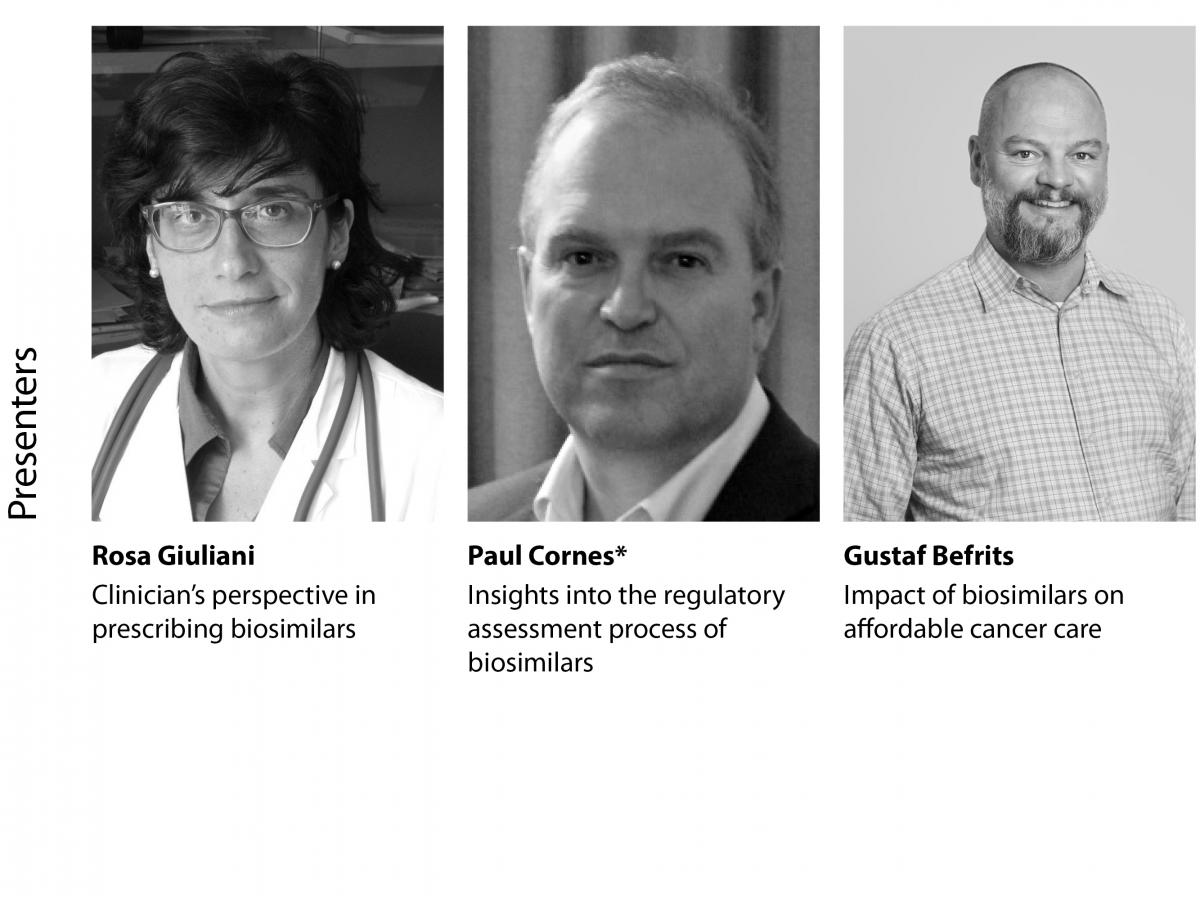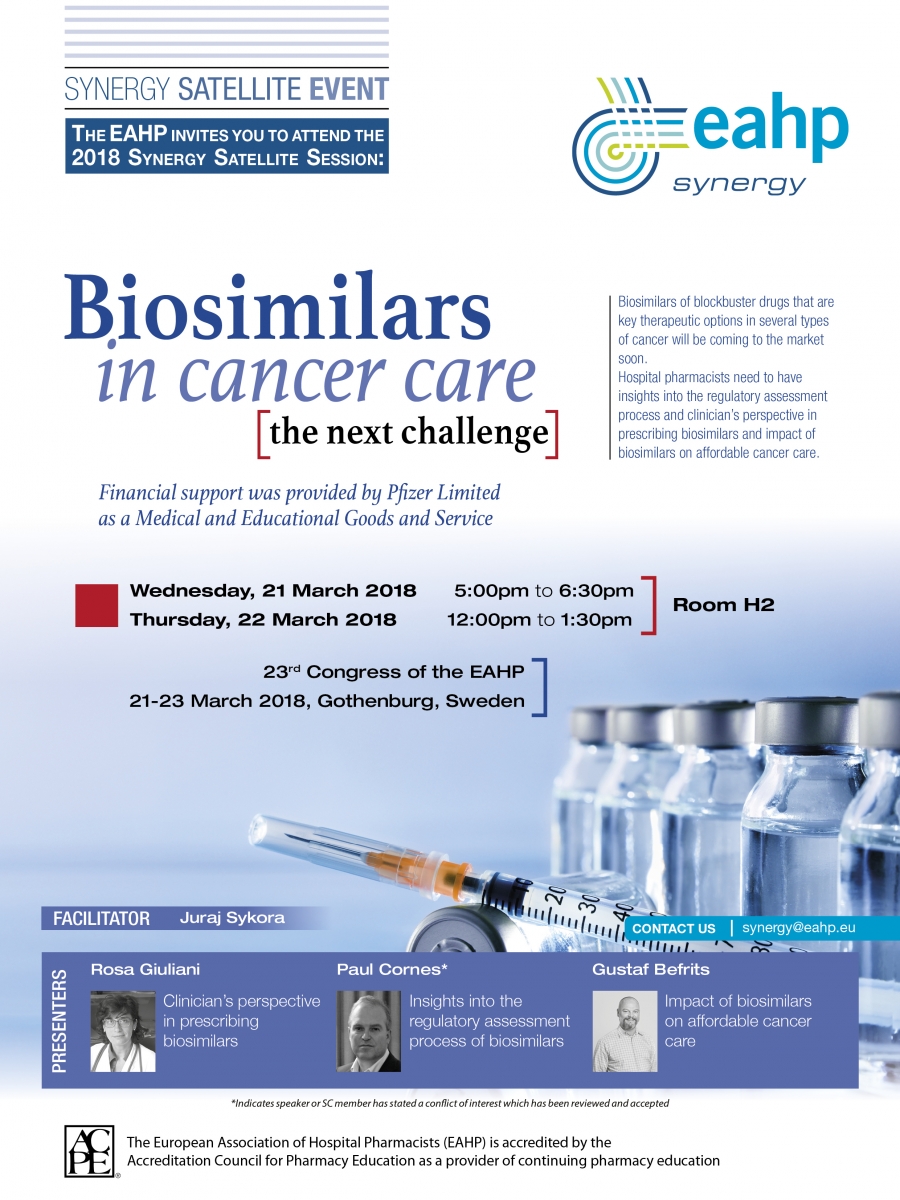
Linked to EAHP Statements
Section 1 – Introductory Statements and Governance: Statements 1.1., 1.3, 1.6
Section 2 – Selection, Procurement and Distribution: Statements 2.1, 2.3, 2.4
Section 4 – Clinical Pharmacy Services: Statements 4.1
Section 5 – Patient Safety and Quality Assurance: Statement 5.11
ACPE UAN: 0475-0000-18-006-L04-P. A knowledge based activity.


Abstract
For many years, biological drugs have not been subject to the competition of generics. There are good reasons for this, as complex biological molecules cannot be shown to be bioequivalent based solely on analytical data and pharmacokinetic studies.
Drug regulatory authorities acknowledged this, and the European Union (EU) pioneered the concept of biosimilars with detailed guidance to show bioequivalence of biological drugs. This concept has been applied for several medicinal products, such as growth hormone, epoietin or granulocyte colony stimulating factors, and more recently, monoclonal antibodies (infliximab) and a fusion protein (etanercept). In all cases, there are no reports of efficacy or safety concerns, and biosimilar use is now widespread in many countries.
Now is the time for cancer drugs. Biosimilars of blockbuster drugs that are key therapeutic options in several types of cancer will be coming to the market soon, such as rituximab, cetuximab or trastuzumab. The opportunity for savings is huge, biological drugs may account for half the cancer drugs budget, but these drugs will be used in life threatening diseases and this may lead to some concerns.
To make the best of this new frontier, Hospital Pharmacists must understand the concepts and facts, to be able to provide a scientific, unbiased approach to this issue, with a focus on patient care in a world of limited resources.
Learning objectives
At the end of the seminar participants should be able to:
- Acquire new understanding of the key facts which support biosimilar approval in the EU as applied to cancer therapy;
- Recognise biased trends of change in first line therapy; and,
- Advise how to implement biosimilars of monoclonal antibodies used in cancer therapy.
Educational need addressed
Hospital pharmacists need to have insights into the regulatory assessment process and clinician’s perspective in prescribing biosimilars and impact of biosimilars on affordable cancer care.
Keywords
Cancer care, biosimilars, prescribing, affordable



























